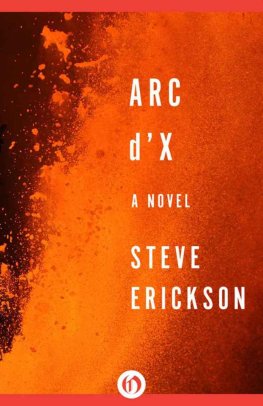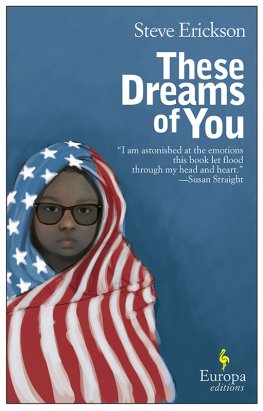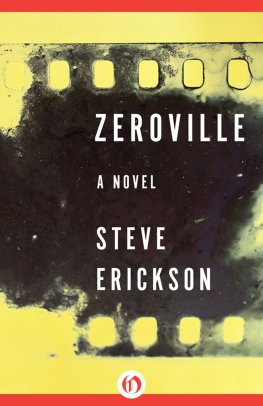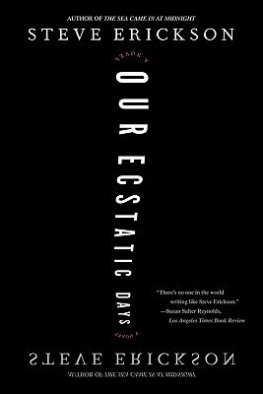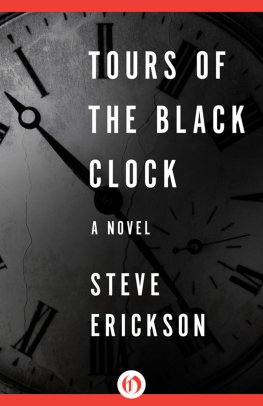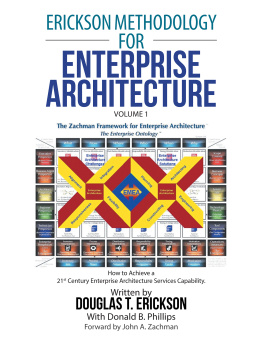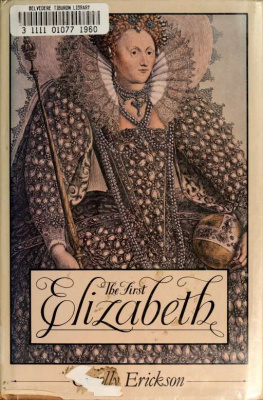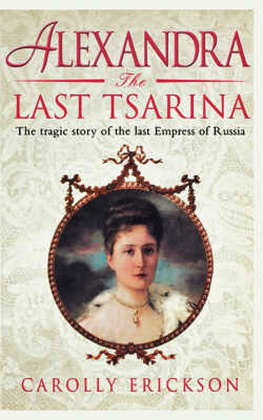Steve Erickson - Rubicon Beach
Here you can read online Steve Erickson - Rubicon Beach full text of the book (entire story) in english for free. Download pdf and epub, get meaning, cover and reviews about this ebook. year: 1997, publisher: Henry Holt & Co (P), genre: Detective and thriller. Description of the work, (preface) as well as reviews are available. Best literature library LitArk.com created for fans of good reading and offers a wide selection of genres:
Romance novel
Science fiction
Adventure
Detective
Science
History
Home and family
Prose
Art
Politics
Computer
Non-fiction
Religion
Business
Children
Humor
Choose a favorite category and find really read worthwhile books. Enjoy immersion in the world of imagination, feel the emotions of the characters or learn something new for yourself, make an fascinating discovery.
- Book:Rubicon Beach
- Author:
- Publisher:Henry Holt & Co (P)
- Genre:
- Year:1997
- Rating:4 / 5
- Favourites:Add to favourites
- Your mark:
- 80
- 1
- 2
- 3
- 4
- 5
Rubicon Beach: summary, description and annotation
We offer to read an annotation, description, summary or preface (depends on what the author of the book "Rubicon Beach" wrote himself). If you haven't found the necessary information about the book — write in the comments, we will try to find it.
Rubicon Beach — read online for free the complete book (whole text) full work
Below is the text of the book, divided by pages. System saving the place of the last page read, allows you to conveniently read the book "Rubicon Beach" online for free, without having to search again every time where you left off. Put a bookmark, and you can go to the page where you finished reading at any time.
Font size:
Interval:
Bookmark:

He never had but the one home
staring him in the eye.
WILLIAM CARLOS WILLIAMS

I got out late winter. I was off on the exact day by thirty-some hours, which is not bad calculations. I made the decision when I went in to keep track of the days, for the simple reason that it was the intention of my jailers to jettison my sense of time and place. They brought you in a metal truck with no windows and took you out in the same truck or one damned similar. The rumor was that Bell Federal Penitentiary was somewhere in the plains of the Montana-Saskatchewan annex. The sight from my cell would not have refuted this. The white of the snow and sky filled my eyes like the sheet pulled over the head of a dead man. If it was not Montana-Saskatchewan, then it was the North Pole, or the moon. It was a signal to anyone whos ever doubted the terror of an idea that almost all of us in this prison that had no time or place were utterly guiItless of a violent act, unless one counts the violence of tongues.
I wasnt one of them. Maybe I should have been. I wasnt one of any of them; probably I should have been. Ben Jarry asked me once, How long you think you can be neither one nor the other? and I said, As long as I choose. Because I chose to be neither, it never occurred to me that anything I did could have ramifications. One day I told some guy a joke and the next day they hung Ben Jarry with it. Then they let me go, not because they appreciated my sense of humor but because they understood it was the worst thing they could do to me. They knew Id tell that joke in my sleep forever. Virtually every moment of the two years and four months I sat in Bell Pen I imagined what it would be like to be out, I imagined the ride out the iron gates in a metal truck with no windows. I was so innocent that it never occurred to me there might never be such a ride. I waited for it. I kept track of the days. Then I told some guy a joke and stopped counting the days, at which point I got the ride in the metal truck. Some time in this period, between the joke and the ride, I lost those thirty-some hours. My jailers were ironic people.
The metal truck took me to Seattle. We got there around one in the afternoon. The door of the truck opened and there was a pier; the glitter of the sea was like glass in my eyes. I just sat in the back of the truck until someone said, Move. I stepped into the street, the guard slammed the door, and the truck rolled off, leaving me there with the clothes on my back. Then someone in a brown suit walked up to me and said, Are you Cale? He saw the look on my face and watched me watch the truck and said, Follow me. I said to him, I had this feeling I was going to be on my own; he could see I was relieved. Not a chance, he answered; what, you think were not going to keep track of you? Were going to keep track of you. The two of us walked back toward this little corrugated shack on the pier. Maybe, I said to him, Ill just slip away sometime, whats to stop me from doing that? We got to the door and he opened it and turned to me and said, And where you going to go, Cale? Besides, he said, youre on our side now. Have you forgotten? You nailed Ben Jarry for us, remember? I said to him, It was just a joke; and he said, Yeah old Ben would laugh his head off right now, if he could get a little breathing room around the neck.
And he said that to me, and I knew from there on out everything was going to be a windowless metal truck, wherever I went and for as long as I lived. And they got me on this boat going down the coast to Los Angeles, and not a soul to be seen on shore for five days and fifteen hundred miles except a soldier here and there, the guards at the Northwest-Mendocino frontier. We came into L.A. middusk. Behind us the sky was yellow and black and the city was blue and orange. It took two hours sailing in, past the blank smoky moors of the Hollywood Peninsula to our north, navigating our way through the outlying swamps where the Hancock Park mansions loomed in ruin, sea water rolling in and out of the porticoes around the doors. Sometimes in the upper floors of a couple of the big houses you could catch a light burning, which would suddenly go out as our boat nearedsquatters hushing their fires because they thought we were the feds. On an island to the south stood a large empty hotel. We crossed the rest of the lagoon into Downtown and then up the main canal. I could see the smaller canals trickling off between the buildings which were black like the mansions behind us, and there was a sound from the Chinese storefronts along the water. It was like bubbling music. Whats that sound, I said to someone on board, who did not answer; some guy was calling to him from the dock something about the cargo, and the one on board called back glancing my way. I was the cargo. I realized why wed kept our distance from the peninsula, they figured Id jump ship and swim to the cliffs, or maybe take a jump over the side back in the swamps and make for one of the houses. They did not understand, or else did not believe I understood, the concept of absolution. When the guy pulled me up onto the dock I saw the look in his eyes. Didnt matter whether he knew Ben Jarry or not, or whether he believed the things Ben believed. If Id hung Jarry myself or even slit his throat, these people couldnt have had greater contempt for me; that would only have been murder, a lesser sin than treachery. And I realized why wed sailed as near the cliffs as we had: Id never have made it alive, but they wouldnt have minded my trying.

I was set up in the Downtown library to live and work, even paid a small wage for doing it. It was one of the conditions of the parole. The library was a hundred-foot tower with a point at the top and the bottom running off in four directions like the wax of a tall gray candlecatacombs of words and dust, manuscripts that nobody read stacked in corners. The library and hall of records were consolidated to serve the urban L.A. population, such as it was. Running the library, I was guaranteed to have contact with almost nobody. I dont think it was intended I should like it in the high tower of the Downtown library. I think someone figured it would seem a bit like jail. I liked it quite a bit; after all, it seemed a bit like jail. A narrow circular stairway led up to a small white room where a narrow uncompromising bed waited in the corner. Beside the bed was a small table. There was a desk, which I had not had at Bell, at the window, and the sight from this cell was an improvement as well, no doubt of thatnot the wastes of the annex but the harbor four blocks north where I came in, and to the west in the distance the swamps and the angry blare of the sun muttering through the trees. In the spring and summer I heard the prostitutes lived out there and had their men on the banks, and the vines of the lagoon glistened with the sap of womens legs.
My duties were threefold. The first was to make sure that in the files of the library all entries beginning with the letter A always preceded those beginning with B. The second was to make sure those doors that were now locked remained locked except to guys in suits with keys. Every once in a while a guy in a suit with a key would show up at the library and unlock a door and disappear inside. Sometimes I caught a glimpse of the books on high shelves. It should go without saying that I did not have any important keys myself, at least not yet. The third duty was to vacate the premises of squatters every night. In my first three weeks I found only one woman with a red sack that I suspect contained a small human being. I left both the woman and her sack alone. But in the morning, I said to her, you have to be gone.
Next pageFont size:
Interval:
Bookmark:
Similar books «Rubicon Beach»
Look at similar books to Rubicon Beach. We have selected literature similar in name and meaning in the hope of providing readers with more options to find new, interesting, not yet read works.
Discussion, reviews of the book Rubicon Beach and just readers' own opinions. Leave your comments, write what you think about the work, its meaning or the main characters. Specify what exactly you liked and what you didn't like, and why you think so.

